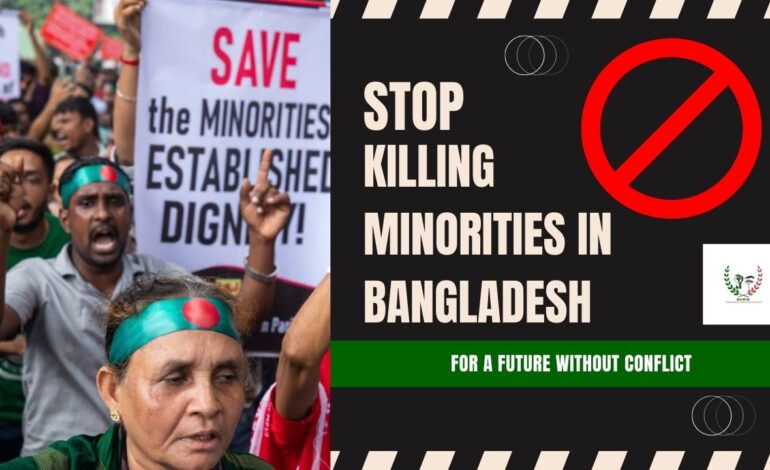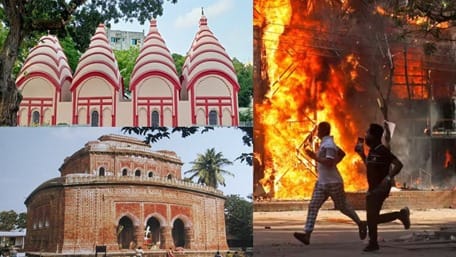Stopping Violence Against Minorities in Bangladesh: An Urgent Appeal
It is time that the violence against the minorities in Bangladesh gets severe reactions and attention. Not a day goes by without reports of target killings of Hindus, Christians, Buddhists,

It is time that the violence against the minorities in Bangladesh gets severe reactions and attention. Not a day goes by without reports of target killings of Hindus, Christians, Buddhists, and indigenous peoples in recent years, such that this trend no longer stimulates rather it raises disturbing questions related to the concerns for diversity and human rights by any nation. The violence is done in the name of extreme thought, politically tutored, and thereby attacks not only the security of a vulnerable segment but also the very foundation of the democratic values of Bangladesh. Decisive steps by the government and by society at large are necessary to nip this horror in the bud and safeguard the rights of all citizens.
These root causes of the violence are complex-ones with historical grievances, socio-political dynamics, and economic disenfranchisement. There is also a dimension of systemic discrimination, marginalisation, and lack of political representation among minority communities within Bangladesh that deepens their vulnerability. Extremist groups capitalise on existing elements of societal tension by using violence and fear as instruments of oppression. Such incidents-attacks on places of worship, enforced conversions, hate speeches-would often place minorities in the ambit of uncertainty, breeding insecurity for them. This culture of impunity emboldens perpetrators but sends a worrying message that violence against minors is tolerated and thus might threaten the social fabric of the nation.
A multifaceted approach would be necessary to counter this increasing violence. First of all, strict legislative measures must be taken by the Bangladesh government to protect the rights of its minorities. It involves the enactment of laws and their strict enforcement to counter hate crimes and discrimination. Installation of exclusive tribunals that are basically designed for the disposal of cases related to violence against minorities will ensure a proper dispensation of justice within the shortest possible time. In addition, training police units on detection and responses to hate crimes should nurture a culture of responsibility to prevent violence and intimidation.
Another needed element in the prevention and containment of violence is community engagement. Without dialogue and a platform for religious and ethnic groups to communicate on particular issues of concern, an atmosphere of understanding will not be encouraged, and hence social cohesion will not be fostered. Community service projects and cultural exchange programs can be part of the joint activities that create interfaith cooperation, can help bridge divisions, and establish communal identity. Most importantly, there must be education programs on tolerance and respect for diversity, which should be included in the curricula of schools in Bangladesh so that the next generation is equipped with such values and will shun extremism. Acceptance at an early age will gradually lead to a harmonious society in Bangladesh.
Moreover, the international community has to play a critical role in the issue of minorities in Bangladesh. Pressure on those in positions of power through diplomatic machinery combined with grassroots activities for peace and inclusiveness should fortify efforts to protect such communities. Organisations concerned about human rights should associate with local NGOs to document abuses and bring global attention to the issues. It would call the Bangladeshi government to accountability and supporting initiatives for human rights advocacy in creating a safer environment for all citizens regardless of their backgrounds.
Conclusion: The challenge in curbing violence against minorities in Bangladesh is one that should be addressed by all stakeholders. Due effort and will are required in making this issue come to fruition. A good moral order is one that transcends political and social boundaries; after all, the strength of a society is measured through the ways by which its societies treat its most vulnerable members. Bangladesh can move toward a future where all its citizens feel safe, valued, and included by tackling root causes of violence, putting laws and policies in place to protect people, encouraging community engagement, and, most importantly, seeking international support. In Bangladesh, protection of the minorities is the need of the hour, and the time for change has come. This is really very important for a true democratic and inclusive Bangladesh.

